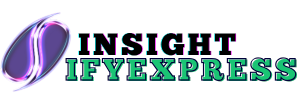
1. What is a mortgage?
A mortgage is a loan used to purchase a home or real estate, where the property itself serves as collateral for the loan. The borrower agrees to repay the loan with interest over a specified period, usually 15 to 30 years.
2. What are the different types of mortgage loans?
The most common types of mortgages include:
Fixed rate mortgage: Interest rates do not change over time
Adjustable-rate mortgage, ARM: Rates fluctuate following an introductory period and typically depend on a market index.
FHA: The acronym stands for the Federal Housing Administration and provides mortgages insured by it for first-time homebuyers who have bad credit scores
VA: Department of Veterans Affairs-insured loan with its guarantee made to military service people, veterans, and families.
USDA loans: Loans guaranteed by the U.S. Department of Agriculture for rural and suburban homebuyers who meet certain income criteria.
3. What is the difference between a fixed-rate and adjustable-rate mortgage?
A fixed-rate mortgage has an interest rate that is fixed for the life of the loan, so your monthly payments will be predictable.
ARMs have an initial period of a fixed rate (e.g., 5 years) followed by a rate that adjusts periodically based on market conditions. ARMs often start with lower rates but carry the risk of rising rates in the future.
4. Which type of mortgage is best for a first-time homebuyer?
For first-time homebuyers, a fixed-rate mortgage is usually a good choice for stability and predictability. Alternatively, FHA loans can be a good option if you have a lower credit score or a smaller down payment.
5. What is an FHA loan?
An FHA loan is an insured mortgage issued by the Federal Housing Administration. It is mainly used to facilitate first-time homebuyers, or those with lower credit scores, in their quest to get a mortgage. FHA loans are typically smaller down payments and have looser credit standards.
6. What is a VA loan?
A VA loan is a mortgage that is guaranteed by the U.S. Department of Veterans Affairs. It is offered to active-duty military personnel, veterans, and their families. VA loans typically require no down payment, no private mortgage insurance (PMI), and offer competitive interest rates.
7. What is a USDA loan?
A USDA loan is a mortgage guaranteed by the U.S. Department of Agriculture for low-to-moderate-income buyers who are purchasing homes in eligible rural areas. USDA loans generally provide 100% financing-no down payment-and interest rates are very low.
8. What is the difference between a conventional loan and a government-backed loan?
Conventional loans are not backed by the government and are typically offered by private lenders. They may require higher credit scores and down payments.
Government-backed loans (FHA, VA, USDA) are insured by the government and often have more flexible credit requirements and lower down payment options.
9. How do I choose between a 15-year and 30-year mortgage?
A 15-year mortgage will have higher monthly payments but lower overall interest costs because you’re paying off the loan more quickly. A 30-year mortgage has lower monthly payments but will cost more in interest over time. Your choice depends on your monthly budget and how much interest you’re willing to pay over the life of the loan.
10. What is the benefit of a 15-year mortgage?
A 15-year mortgage pays off the loan faster, saving money in interest over time. It also offers the possibility of building equity more quickly.
11. What are closing costs?
Closing costs are fees of a home purchase that are paid at the time of closing a transaction. Appraisal fees, title insurance, loan origination fees, inspection fees, and taxes are a few examples of closing costs. Closing costs can range from 2% to 5% of the loan amount.
12. What is the minimum amount of down payment needed for a mortgage?
The amount of down payment depends on the type of loan:
Conventional loans typically require 5% to 20% down.
FHA loans usually require as little as 3.5% down.
VA loans and USDA loans may require no down payment.
13. What is private mortgage insurance (PMI)?
PMI is insurance in case the borrower defaults on the loan. It is mostly required if you make a down payment less than 20% on a conventional loan. PMI can be added to your monthly mortgage payments.
14. What is the difference between PMI and MIP?
PMI or Private Mortgage Insurance is mostly used on conventional loans when the down payment is not more than 20%.
MIP (Mortgage Insurance Premium) is for FHA loans and is required regardless of your down payment size.
15. How do interest rates affect my mortgage?
Yes. Your monthly payment and the total amount of interest you will pay will rise with higher interest rates. Conversely, the monthly payments and less paid in interest go down when your interest rates decrease. Interest rates go up or down according to fluctuations in the market and the Federal Reserve’s policies.
16. Should I lock in my mortgage rate?
Locking in your mortgage rate guarantees that the rate you are quoted will not change before closing, protecting you from rising rates. But if interest rates fall after you lock, you’ll be locked into a higher rate. It makes sense to lock in a rate if you feel rates are going to go up before you close.
17. What is an escrow account?
An escrow account is an account set up by your lender to collect and pay certain expenses related to your mortgage. These typically include property taxes and homeowner’s insurance. A portion of your monthly mortgage payment goes into the escrow account, and the lender pays the bills from this account.
18. What is a mortgage pre-approval?
A pre-approval is the process in which a lender will evaluate your financial situation, credit score, income, and debt-to-income ratio to determine how much you’re eligible to borrow. A pre-approval letter can be an advantage when making an offer on a home because it lets sellers know you’re a serious buyer.
19. What is a mortgage pre-qualification?
A pre-qualification is an informal process in which a lender provides you with an estimate of how much you might be able to borrow based on a cursory review of your finances. It is less extensive than a pre-approval and does not ensure you will be approved for a loan.
20. How does my credit score impact my mortgage choices?
Your credit score plays a huge role in the mortgage approval process. A high credit score results in a lower interest rate, which translates to overall savings throughout the life of the loan. Most conventional loans require a minimum credit score of about 620, while FHA loans will allow scores as low as 580.
21. What is a loan-to-value (LTV) ratio?
The loan-to-value ratio (LTV) is the percentage of your home’s value that is being financed through the mortgage. Lenders use this ratio to assess the risk of the loan. A higher LTV (e.g., 90%) means you’re financing more of the home’s value, which could result in higher interest rates or the need for PMI.
22. What is the difference between a conforming and non-conforming loan?
Conforming loans meet the standards set by government-sponsored enterprises, such as Fannie Mae and Freddie Mac. The interest rates on these loans tend to be lower, and qualification is easier.
Non-conforming loans do not meet the above standards and are often more expensive. Jumbo loans are an example of non-conforming loans.
23. What is the difference between a mortgage broker and a lender?
A mortgage broker is an intermediary that works between you and several lenders. They facilitate the process of finding the most favorable mortgage rate and terms from any number of different lenders.
The lender provides a loan directly to you. You can opt for a bank, credit union, or online lender.
24. Can I refinance my mortgage?
Yes, refinancing is essentially replacing your existing mortgage with a new loan, usually to get a better interest rate, to change the loan term, or to switch from an adjustable-rate mortgage to a fixed-rate mortgage. Refinancing can help you lower your monthly payments or reduce the total amount of interest you pay.
25. How do I know if I’m getting a good mortgage deal?
To determine if you’re getting a good mortgage deal, consider:
Whether it has a competitive interest rate as against the existing rates in the market.
The fee implications, like closing costs and origination fees and any undisclosed fee
The type of loan including how long is the loan for, and is it fixed rate or an adjustable one.
Customer service and credibility from the lending firm.
Choosing the right mortgage involves understanding your current financial situation, goals, and personal preferences. Being knowledgeable about various loan types, rates, and terms, combined with working through a qualified lender, will empower you to make an informed choice that best meets your needs. Remember to shop around, get pre-approved, and fully understand the costs associated with securing the best mortgage for your home purchase.



Okay, so I tried out ae66 recently. It’s pretty slick, I like the design. It’s not the best, but it isn’t bad either. Give it a look-see at ae66.